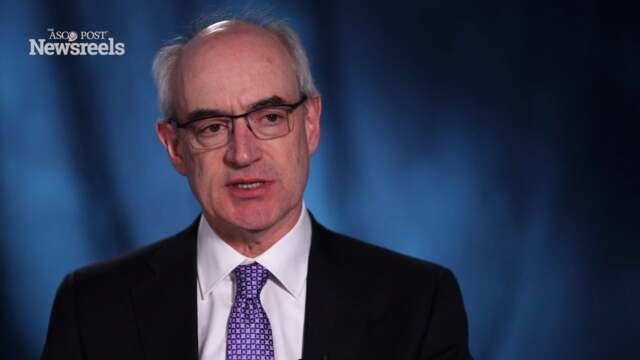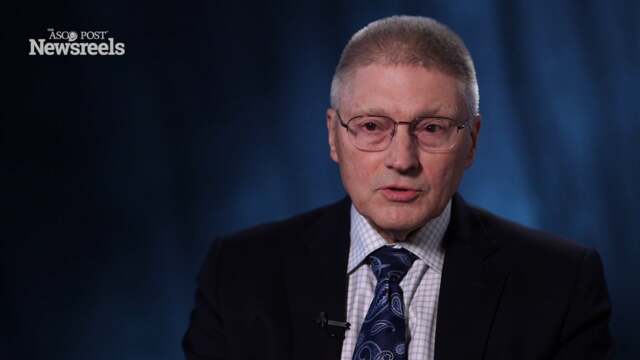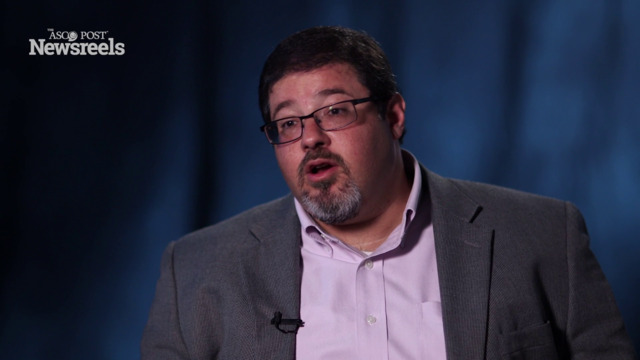Lorraine Cheryl Pelosof, MD, PhD, on Never-Smokers in NSCLC
2015 IASLC World Conference on Lung Cancer
Lorraine Cheryl Pelosof, MD, PhD, of UT Southwestern Medical Center, discusses her study findings, which demonstrate an increasing proportion of never-smokers among patients with non–small cell lung cancer (Abstract ORAL 22.01).
Everett E. Vokes, MD
Everett E. Vokes, MD, of the University of Chicago, summarizes expert views on treating stage IIIA disease: decision-making in selecting patients for surgery; multiple-modality choices; and using induction chemotherapy (Abstract ED10).
Philip Bonomi, MD
Philip Bonomi, MD, of Rush Medical College, summarizes the findings on anamorelin and its use in advanced NSCLC for improvement in anorexia/cachexia symptoms (Abstracts ORAL 29.01, ORAL 29.02).
Tony Mok, MD, and Fred R. Hirsch, MD, PhD
Tony Mok, MD, of The Chinese University of Hong Kong, and Fred R. Hirsch, MD, PhD, of University of Colorado Health Science Center discuss the highlights of the featured plenary session, which included the conference’s top four abstracts (Abstract PLEN04).
Barbara J. Gitlitz, MD
Barbara J. Gitlitz, MD, of USC/Norris Cancer Center, discusses the first prospective study on the genomic drivers and demographics of lung cancer in patients under 40 who took part in the study remotely via the Internet (Abstract ORAL22.05).
Howard Jack West, MD
Howard Jack West, MD, of the Swedish Cancer Institute, summarizes three important papers: anlotinib as third-line treatment for refractory advanced non–small cell lung cancer; the EGFR exon 20 mutation as a prognostic/predictive biomarker; and EGFR exon 18 mutations as molecular predictors of sensitivity to afatinib or neratinib (Abstracts ORAL 3.01, 3.02, and 3.03).





